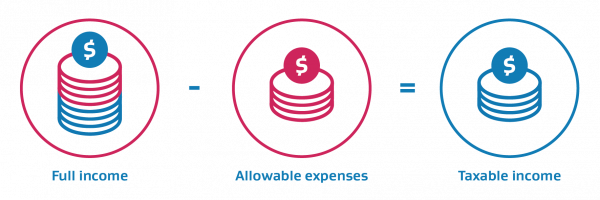Finance tips to help your business
Mismanaging money is one of the most common reasons small businesses, sole traders and contractors fail. Our step-by-step guide will help you stay on top of your finances.
1. Create a business model that works
Your business model is the way you or your business is going to operate and make money — however much you want to make. It helps you identify how much money you’ll need to get started and what your income needs to be to cover costs and make a profit.
You should:
- identify your operating costs, eg transport, staff, electricity, lease
- estimate your likely customers, eg foot traffic and how competitors in your area perform
- know your limitations, eg if your café can seat 20 people at a time, it limits how many people you can serve in a day
- keep metrics specific to your industry, eg the cost of a café will be different to an IT contractor.
2. Set a budget
Now you know how much money you need to cover your costs and make a profit. The budget is where you set your goals and a plan for how you’re going to get there.
You should:
- Set your targets — what are your profit goals for the year?
- Plan for your costs — when do payments need to be made?
- Review your budget with how you’re actually tracking monthly.
It’s easier to model operating costs first, then think about how much money you’ll need to cover your costs.
3. Keep track of your finances
To understand your numbers you need to know what’s happening. Accurate records help you see what’s going on in your business.
You should:
- Keep accurate and up-to-date records.
- Stay on top of your cash flow — the money coming in and going out.
- Use a separate bank account for all your work income and expenses to track your spending.
- Understand the trends — do you have enough to keep you going during the quiet periods or gaps between contracts?
- Set aside money for periodic payments, eg putting aside a portion of your income in a savings account to cover taxes and levies.
- Ask to pay bills in instalments, eg pay for your accountant throughout the year instead of in one big invoice.

Find the system that works well for you.
Online systems can make it easy to keep records up to date.

Case study
Spending money wisely
For Vicky Ha of House of Dumplings, managing her finances is about having money in the bank before buying things. “I started with two pasta machines. I mixed the dough by hand. That is just stupid, but I didn’t want to spend $1,000 on a mixer. I did it the hard way and until I had the money in the bank I wouldn’t buy it,” she says.
“What you want and what you need is completely different. That’s business 101. Never get what you can’t afford — that’s the bottom line for me.”
She also understands that part of running a successful business is knowing what you’re good at and where you need help.
“I worked on what I wasn’t good at. I hate numbers and details. I had to find the right people to do that stuff for me. If that means paying people, that’s necessary because you need to concentrate on what you’re good at.”
4. Keep on top of debtors
You need to be paid for the work you do. Until payment is made, you’re financing the cost of the job out of your own pocket.
You should:
- Be clear about the estimated cost before starting the job.
- Invoice for the work you do — no one is going to pay until they have been invoiced.
- Invoice as soon as possible — your customer will consider it a lower priority the longer you leave it.
- Chase debtors regularly, eg at least every month.
Invoice when your customer still remembers the value of the work you’ve done.
The longer you leave it, the more this will wear off.
5. Get an advisor if you need help
Finances are an important part of running a business, and sometimes this means you’ll need help from an accountant or bookkeeper.
You should:
- Get advice before making a financial decision you’re unsure of, eg expanding into a new area or buying a high-value asset.
- Ask for help if you feel like you’re not on top of things or at key times, eg when doing your first tax return or when operating at a loss.
- Weigh up the cost — paying an expert may end up cheaper than trying to do it yourself.
Consider where you want to spend your time.
You may prefer to get help with your accounts so you can work on other areas of your business.

Expert view
Warning signs of missed payments
If someone who owes you money is in financial stress, you’ll probably notice changes to their payment patterns, says Anna Chartres of Christchurch law firm Lane Neave.
“They’ll be deviating from your standard credit terms and conditions which they may have previously complied with. You might see that they are slow on payments, you have cheques which are being dishonoured, and that’s an early indication that something might be awry,” she says.
“Make sure you have terms and conditions of trade in place. If you’re supplying goods, it’s a good idea to grant a security over those goods and say that title in the goods — the actual ownership of the goods — doesn’t pass until you have been paid.”

